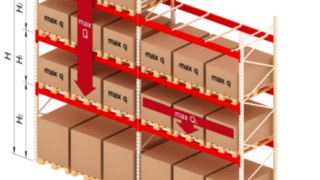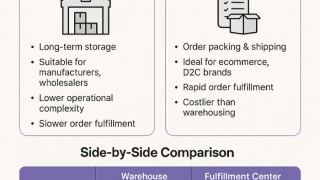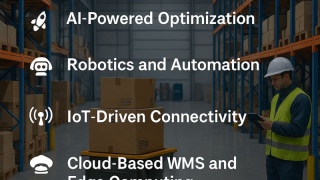How to Choose a Logistics Outsourcing Partner: A Strategic Guide for Businesses
In today's fast-paced and highly competitive marketplace, efficient supply chain management is more than a necessity—it's a strategic advantage. For many companies, logistics outsourcing has emerged as a solution to streamline operations, reduce costs, and scale effectively. But choosing the right third-party logistics (3PL) partner is critical. A poor choice can disrupt operations and hurt your reputation; the right one can unlock growth and efficiency.
This guide explores how to select the ideal 3PL provider and what factors matter most in the provider selection process.

Why Logistics Outsourcing?
Logistics outsourcing allows businesses to delegate parts or all of their logistics operations—such as warehousing, transportation, inventory management, and fulfillment—to a specialized 3PL provider. Key benefits include:
-
Cost Efficiency: Reducing overhead by leveraging the provider's infrastructure.
-
Expertise: Gaining access to industry specialists and advanced technologies.
-
Scalability: Adjusting logistics capacity based on seasonal or business fluctuations.
-
Focus on Core Activities: Freeing internal resources to concentrate on strategic goals.
However, these benefits are only realized through careful provider selection.
Understanding 3PL Providers
A third-party logistics provider serves as an outsourced logistics department. There are different types of 3PLs:
-
Standard 3PLs: Offer basic services like transportation and warehousing.
-
Service Developers: Provide enhanced services including tracking, traceability, and customized reporting.
-
Customer Adapters: Take over a company’s logistics operations and offer tailored solutions.
-
Customer Developers: Fully integrate with clients and offer highly customized logistics strategies.
Knowing which category matches your needs is a crucial first step.
Key Criteria for Provider Selection
Here are the most important factors to consider when choosing your logistics outsourcing partner:
1. Industry Experience
Look for a 3PL with proven success in your sector. Industry knowledge often translates to smoother integration and better anticipation of logistical challenges.
2. Technology Integration
Choose a provider that uses modern technology platforms (WMS, TMS, ERP). Real-time visibility, automation, and data analytics are vital for operational transparency and optimization.
3. Scalability and Flexibility
Can the provider scale with your business as you grow? Flexibility in adapting to seasonal spikes or new market entries is a must.
4. Geographic Reach
If you plan to expand internationally, ensure your 3PL has the infrastructure and legal know-how to support cross-border logistics.
5. Cost Transparency
Understand the pricing model clearly. Watch for hidden fees and ensure that the cost aligns with your budget and expected ROI.
6. Cultural Fit and Communication
Your logistics partner should function as an extension of your team. Seamless communication, shared values, and responsive service are key to long-term success.
Making the Decision
Before signing a contract:
-
Request case studies or client references.
-
Visit their warehouses and fulfillment centers.
-
Conduct a pilot project, if possible.
-
Review performance metrics and KPIs.
A well-documented service-level agreement (SLA) that defines expectations, responsibilities, and penalties for non-compliance will set the tone for a productive relationship.
Final Thoughts
Choosing a logistics outsourcing partner is more than a transaction—it's a strategic alliance. With the right 3PL provider, businesses can not only navigate complex logistics challenges but also gain a competitive edge in the marketplace.
In this era of rapid change and global commerce, your logistics strategy can define your customer experience, brand reliability, and bottom line. So take the time to evaluate your options, ask the right questions, and choose a partner that aligns with your goals.
_0x70_d59.png)



